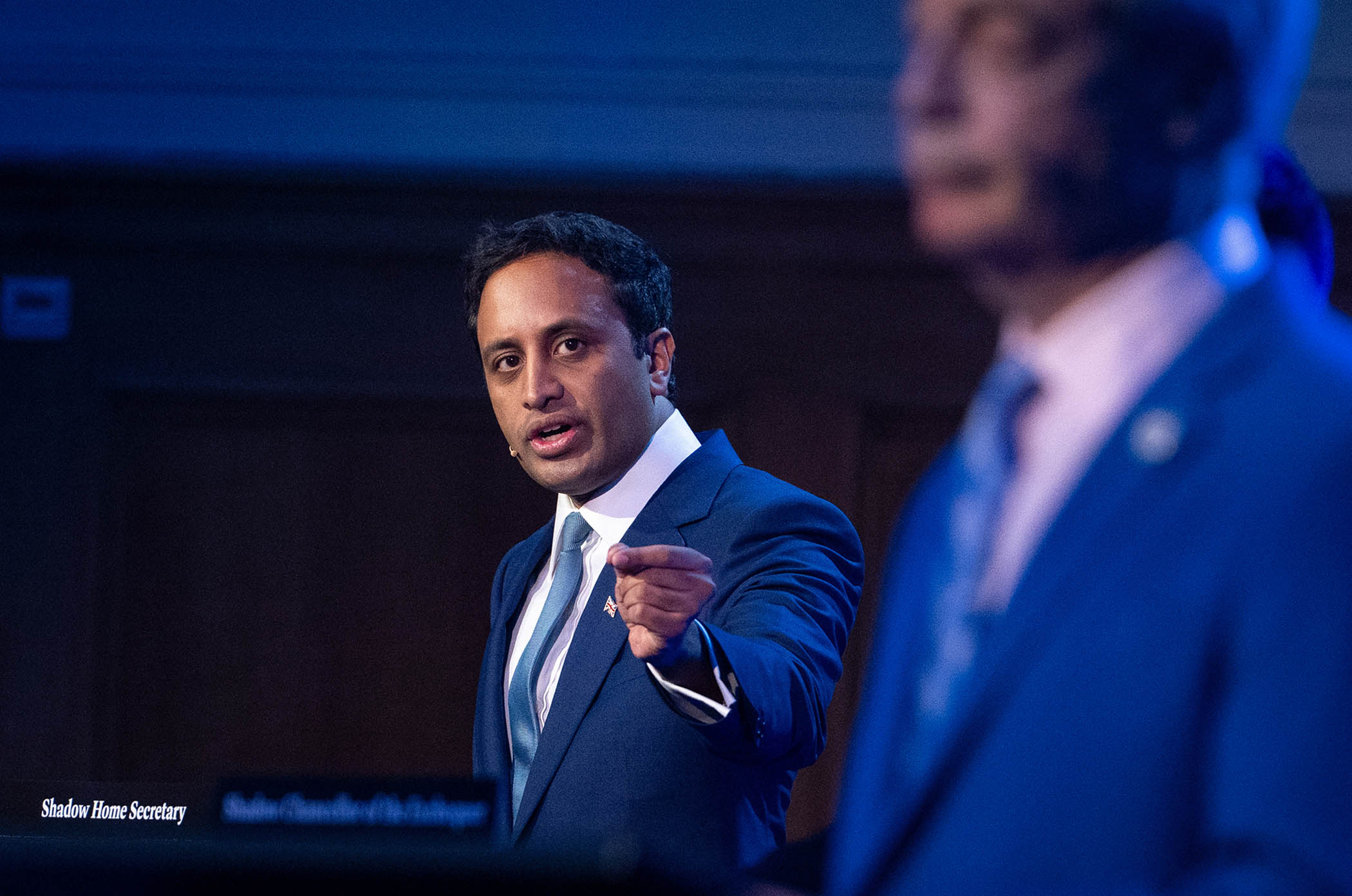Britain’s first secure school for young offenders opened in Kent in August last year. Oasis Restore was trialling a new approach to youth custody that put the emphasis on education and therapeutic care rather than punishment and retribution. There were bedrooms instead of cells and teachers, not guards.
Politicians from all parties welcomed the groundbreaking facility. Criminal justice experts described it as a vital alternative to violent and dysfunctional young offender institutions.
Then, six months after it started taking pupils, the school discovered the doors installed by the Ministry of Justice (MoJ) were faulty. Oasis Restore was housing some of the most complex, dangerous and damaged young people in the country, including murderers, rapists, drug dealers and gang members. Security was crucial, but the teenagers were able to kick through the doors.
Staff found themselves standing in doorways as human barriers to try to maintain order. Pupils started carrying makeshift weapons – including shards of wood from the shattered doors – for their own protection.
In March, the MoJ said it would replace more than 180 doors, at an estimated cost of almost £3m. The procurement team promised stronger doors would be installed by the middle of May. Then it was by June, then July. But they never materialised.

Prisoners at Strangeways melted windows with kettle elements.
Eventually, in August, Oasis, the charity that runs the school, decided that the only responsible thing to do was to shut the facility until the safety of pupils and staff could be guaranteed. “The sense of frustration is huge – we didn’t design the doors, we didn’t fit the doors,” said Steve Chalke, the founder.
The pupils have "gone to a series of young offender institutions, which is a completely different environment. I sit at home thinking about the faces of those children, the trust that existed between us and the way in which the system has failed them.”
A government spokesman said: “We’re working with Oasis to get the school back up and running as quickly as possible.”
But eight months after the problem was reported, the doors have still not even been ordered. “Someone very senior in the MoJ who doesn’t work there any more said to me: ‘If the MoJ were a car, it would have the engine of a lawnmower and the brakes of a Formula One Ferrari’,” said Chalke.
The fiasco is part of a wider pattern of failings in the Whitehall procurement process that is wasting millions of pounds of taxpayers’ money and hampering the delivery of public services.
Newsletters
Choose the newsletters you want to receive
View more
For information about how The Observer protects your data, read our Privacy Policy
When cell windows at Strangeways prison in Manchester broke, the Prison Service, part of the MoJ, used the wrong type of plastic to replace them. Charlie Taylor, the chief inspector of prisons, said: “Prisoners quickly realised that they could use the element from their kettles to burn a hole in the window.”
Drones carrying illicit substances were so easily able to get into the jail through the windows that when the inspectors visited last year, 39% of inmates tested positive for drugs. The Prison Service is now installing “new, new windows”, Taylor said, “but whether they will have replaced them by the time we reinspect early next year is not at all certain.”
He thinks one of the problems is that procurement is overcentralised in Whitehall. Prison governors are only allowed to buy items worth up to £500. It is “an absurd amount for the leader of an institution that carries enormous risks and has a budget that is often in the tens of millions”, the chief inspector said.
Each year, the government spends more than £400bn on procurement, double the NHS budget and more than seven times defence spending. The chancellor, Rachel Reeves, has pledged to use public procurement as a key strategic tool for creating jobs and boosting growth.
A recent report from the Institute for Government found that procurement is overly bureaucratic and inflexible, while civil servants too often lack the necessary commercial expertise.
Ben Paxton, a senior researcher, warns of “waste and inefficiencies” and the need for strong accountability. “Without that, there’s a risk that relationships between procurement teams and businesses get a bit too cosy, even if they’re not corrupt,” he said.
The potential for problems was highlighted by the case of the lingerie entrepreneur Michelle Mone, who used her political contacts to introduce her husband’s company to the government’s “VIP fast lane” during the pandemic. Last month, a court ordered PPE Medpro to repay £122m for faulty medical equipment.
But the flaws in procurement are not just about the behaviour of rogue individuals or buying faulty items. There is a systemic issue about the way in which contracts are being awarded that is having a real impact on frontline services.
In July, ministers had to step in to save Teach First, which sends top graduates into schools in deprived areas, after The Observer revealed that the procurement team at the Department for Education was trying to stop the charity using its own name to recruit teachers.
Pat McFadden, then chancellor of the duchy of Lancaster, summoned officials to discuss what was needed to ensure “unnecessarily bureaucratic rules” did not harm the scheme. The wording of the final tender document was changed so that Teach First could continue operating under its well-recognised brand.
Other similar programmes are, however, still under threat because of overzealous Whitehall procurement divisions seeking to introduce more competition into the awarding of government contracts.
It’s baffling new procurement rules favour big multinational outsourcing firms
It’s baffling new procurement rules favour big multinational outsourcing firms
Natasha Porter, Unlocked Graduates
Unlocked Graduates, a charity that recruits high flyers to work as prison officers, has also been forced to close its programme after failing to reach agreement with the MoJ over its contract.
Natasha Porter, the charity’s chief executive, said: “Government alone can’t fix the toughest criminal justice problems – that’s why it has always relied on partnerships with specialist charities like Unlocked who truly understand what works on the frontline. So it’s baffling that new procurement rules seem engineered to edge these same organisations out, with terms that favour big multinational outsourcing firms.”
Alex Chalk, who was the justice secretary until the last election, describes the situation with Unlocked as a “scandal”. He says he tried to save the charity when he was at the MoJ but “came up against the worst small-c conservative instincts of parts of the prison hierarchy” and the civil service that “resented the dynamism and ambition of Unlocked”.
The Clink, a rehabilitation charity, has been told to submit a bid to keep open its flagship restaurant at Brixton prison, which lets members of the public into the jail to eat meals cooked and served by inmates. Although it created the concept and paid for the kitchen, it now has to compete with other contractors to deliver the service.
Stephen Bubb, director of the Gradel Institute of Charity, said the government procurement system “discriminates” against charities. “The whole system needs root and branch radical reform if we are to see real change in public service delivery.”
Nick Gibb, who was schools minister for more than a decade in the last Tory government, says his experience of procurement was “an unmitigated disaster” in almost every case.
“The system they use to evaluate the tenders is flawed and invariably results in the wrong outcome,” he said. “I remember asking a civil servant: ‘What happens if, hypothetically, Albert Einstein applied to be the government’s chief scientific officer but fluffs the interview?’ The answer was that he doesn’t get the job. They said: ‘The theory of relativity and all that got him the interview but if the interview doesn’t get those boxes ticked, then that’s it.’ That’s insane.”
Photograph by Christopher Furlong/Getty Images, HM chief inspector of prisons



